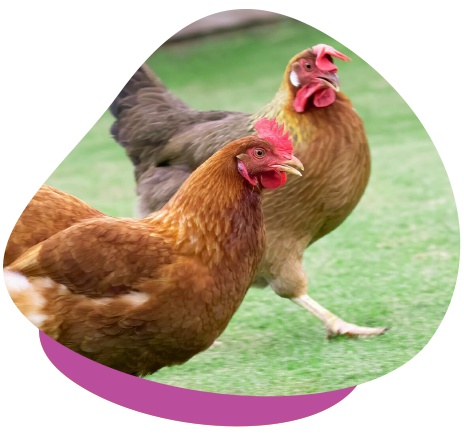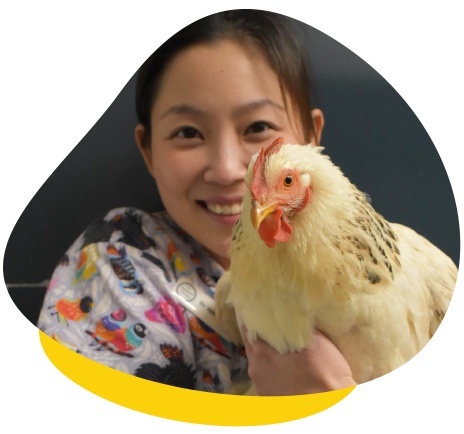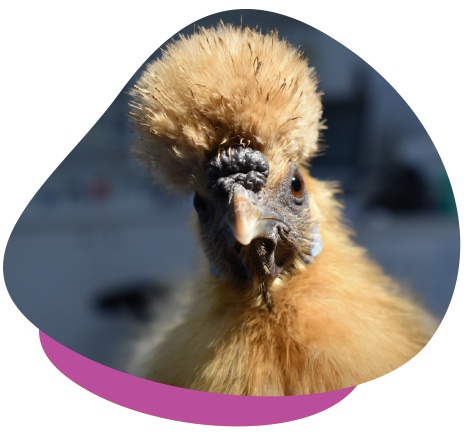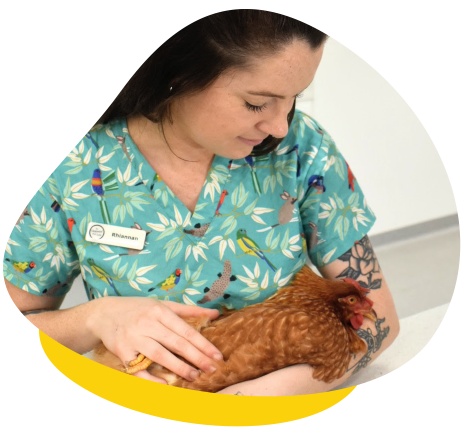Chickens make wonderful pets, endearing themselves to many with their unique personalities and interesting behaviours. Caring for chickens is relatively easy, but ensuring they receive the right vaccinations, proper husbandry, and a balanced diet is crucial. This comprehensive guide covers all aspects of chicken care to ensure your feathered friends lead happy, healthy lives.

Vaccinations and Health
When acquiring chickens, ensure they have received the necessary vaccinations. Some viruses require vaccination at one day of age. Unfortunately, if they do not receive this vaccination at that early stage of life, they cannot be effectively vaccinated later in life. There is no effective treatment for many of the viral diseases, so it is very important to try only to buy chickens that have already been vaccinated.
Husbandry and Shelter Care
All birds are predisposed to foot problems (pododermatitis) if kept on an incorrect surface. This problem is particularly common in chickens; therefore, it is imperative to ensure that you have the correct flooring. Avoid wire and concrete floors as this predisposes to damage to the bottom of their feet.
It is also important to provide perching for chickens. It allows them to exercise their feet, and they generally enjoy perching. Natural branches or dowel perches can be used, and it’s important to have varying diameters of the perch selected.
If you intend on keeping your chickens in an enclosure or chicken coop, then it is crucial to ensure they have enough space to express their normal behaviours, including dust bathing. Do not over crowed the coop, too many chickens in a small area as this can lead to a range of problems and allow diseases to spread easily.
The enclosure should provide adequate protection from predators and adverse weather. Shaded or covered areas are important so that they can cool off on warm days and subsequently shelter from rain, wind and other prevailing weather conditions.


Deworming and Health Monitoring
Regular deworming is crucial for chickens, given the prevalence of worms in their environment. There are multiple different methods of deworming, and it is best to contact us to ensure that you have the appropriate drug combination and method of administration to meet your needs. We also recommend regular faecal testing for chickens so that we can best select the right deworming medication and protocol.
Proper Diet and Nutrition
Chickens have specific dietary requirements depending on their age and activity levels. Meeting your chickens’ nutritional needs is essential for their overall health. In general, your chicken’s dietary requirements can be reached by providing a high-quality commercial poultry pelleted diet as the majority of their diet.
The protein content is important, and this should be displayed on the packaging. Growing poultry requires a higher percentage of protein (often around 18-20%), whereas mature birds often require lower levels of protein (generally around 14-16%) depending on their egg-laying activity.
If you are still determining what amount of protein your chicken should have, then please get in touch with us. Calcium supplements can also be offered to chickens in lay if needed. Fresh vegetables, mealworms and other small insects as well as safe table scraps, can also be offered to supplement the diet. Clean, fresh water should be provided at all times.
Identifying Common Problems
Be vigilant for signs of illness. Lethargy and weight loss are common symptoms that unwell chickens may display. Unfortunately, these symptoms are not specific to any particular disease, and if you see any of these signs, it is best to organise a consultation as soon as possible.
Worm burdens are common as most poultry are kept on soil or sand, providing a good environment for the worms to breed. Many deworming medications sold through pet shops are ineffective, so it is best to discuss your planned worming protocol with your vet to ensure that it will be effective. External parasites are also common in poultry, and once again, many of the treatment products sold at pet shops are ineffective.
Chickens are susceptible to various viruses that can cause symptoms including paralysis, skin lesions and respiratory disease.


Reproductive diseases are very common, especially in hens that have been rescued from battery farms. Chickens with reproductive disease can show a range of symptoms, the most common being an enlarged or distended coelom (abdomen). These diseases can be very serious and life-threatening. However, if detected early, treatment can be successful in many cases.
Caring for chickens as pets is a rewarding experience, but it requires attention to their specific needs. If you’re ever unsure or concerned about your chickens’ well-being, don’t hesitate to consult your local Unusual Pet Vets team for expert advice and support.

